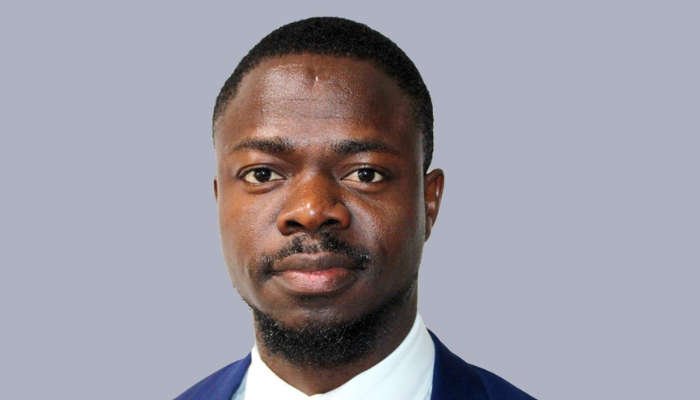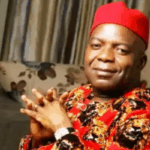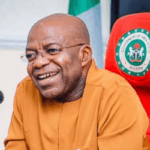Samuel Adenji is a Nigerian-born technology educator and AI systems researcher whose work connects digital literacy, cybersecurity equity, and scalable cloud intelligence frameworks. In this interview, he reflects on his journey from local curriculum reform in Nigeria to shaping the conversation on AI governance and digital citizenship frameworks in international contexts. john salou The excerpt brings:
Nigeria is currently playing catch-up in both AI and cybersecurity (technology sector in general), how can we take a leap to bridge the talent gap in the tech ecosystem?
Nigeria's lag in catching up in AI and cybersecurity stems from historical underinvestment in technological infrastructure and education, but our young population and growing digital economy provide a unique opportunity to move forward. The talent gap is evident from the high demand for skills amid growing threats, but we can close it by focusing on strategic, accelerated growth rather than incremental moves. To take the leap, first, aggressively implement the pillars of the National AI Strategy: Prioritize economic growth through AI in key sectors such as finance and healthcare, while building strong infrastructure and nurturing local talent through public-private partnerships. This means increasing government funding for AI R&D, as recent analyzes suggest, in order to create innovation centers and scholarships that attract and retain talent. Second, establish specialized training programs such as cyber security academies with real-world labs, using global models to rapidly acquire skills in AI ethics, threat detection and cloud security. Third, take advantage of international networks to bring American expertise to bear for joint fellowships and knowledge transfer, such as those I am advocating, allowing Nigeria to adopt cutting-edge tools without reinventing the wheel. Additionally, treat cybersecurity as a cultural and competitive asset: integrate it into the national curriculum early, like my textbook series, and encourage proactive strategies like AI investments to protect the digital economy. With UNESCO's digital transformation plans emphasizing literacy and skills, we can expand community-based programs like RCRI across the country to create a broader talent pipeline. If implemented boldly, Nigeria could establish itself as Africa's AI leader, and turn our demographic advantage into a technological powerhouse
What gaps have you seen in the AI, cybersecurity sector in Nigeria and how can we bridge these gaps?
From my work on the ground in Nigeria, including with RCRI where we trained over 6,000 rural participants, I have seen a deep talent gap in AI and cybersecurity expertise, which leaves the country vulnerable to growing threats. It is not just about the shortage of skilled professionals; This is especially exacerbated by low awareness among SMEs and rural areas, leading to issues such as data leaks, malware and AI-powered attacks, which cost Nigeria about $500 million annually due to cyber crime. Businesses and governments are often unprepared for AI-amplified threats like deepfakes or sophisticated phishing, with Nigeria facing more than 4,388 weekly cyberattacks. In urban centres, some progress has been made, but the divide is clear: many lack the infrastructure or training to adopt proactive security, resulting in a reactive approach that cannot accelerate AI-driven cyber crimes. To bridge these gaps, we need a multi-pronged strategy, starting with large-scale skills upgrading investments. The Nigerian government's National AI Strategy (NAIS) has a strong foundation, emphasizing indigenous expertise and ethical frameworks. We can work on this by creating special academies like the proposed Cyber Security Academy with simulation labs and tailored curriculum to train thousands of people in AI and cyber defence. Public-private partnerships are important, funding R&D and collaborating with firms like Deloitte or PwC to integrate AI-powered solutions into businesses while prioritizing digital literacy in schools and communities. From my perspective, initiatives such as fellowships and cross-border knowledge sharing (for example, linking Nigerian ministries with US programs) can accelerate this, reaching out to underserved areas to foster a culture of cybersecurity as a competitive advantage, while ensuring that training is practical and inclusive.
As a researcher, how does your current research connect to your earlier digital literacy work in Nigeria?
My research in the US focuses specifically on AI-based cybersecurity frameworks and scalable digital risk models for public systems. But in many ways, I see this as a continuation of the same journey. Whether it is a cloud system in a rural town in Kebbi State or a US healthcare institution, the principle is the same; People deserve to benefit from technology without being exposed to disproportionate risk. I'm working on developing modular cybersecurity and AI literacy toolkits that can be adapted to all contexts, from community training in Africa to enterprise systems in the US. My long-term goal is to create cross-border technology resilience programs that allow knowledge, not just equipment, to be transmitted globally.
Can you explain how grassroots cybersecurity education influenced your broader work in AI and cloud computing?
RCRI started when I noticed that rural communities in Northern Nigeria were adopting digital tools like mobile money, WhatsApp communication without any cyber security literacy. People were being cheated not because they were careless, but because cyber security education was non-existent at their level. We trained over 6,000 participants in rural communities, and I saw firsthand that technology without literacy creates new forms of vulnerability. That experience shaped the way I think about AI and cybersecurity today. This convinced me that innovation must go hand in hand with capacity building. So when I started working on AI-powered cloud security models in the US, I had a strong belief that digital defense should be inclusive, not just built for those already inside the ecosystem.
As a researcher, what influenced your interest in writing books on ICT curriculum resources?
Frankly, I did not start out with the ambition of writing the “most widely adopted” ICT textbook in Nigeria. My concern was simpler and more personal. I have seen many students learning computer science only theoretically without any context or access. In many schools, especially outside urban centres, ICT was being taught from abstract, foreign-designed textbooks that did not reflect our realities. Students memorized definitions, but did not see the technology as something they could actually participate in. So my goal was not just to write a textbook, but to design a digital literacy tool that speaks the language of Nigerian classrooms, using examples that reflect our markets, our homes, our devices, even our infrastructural constraints. The fact that the number of copies distributed in schools and state curriculum has exceeded 5 million makes me very grateful. It confirmed that localized knowledge, when taken seriously, can have national impact.
How did you take the curriculum model to national reach?
The development was driven by the teachers themselves. When teachers in Kwara and Lagos started using the books, they started reporting better engagement with students. This led to formal review by state curriculum boards, and ultimately education ministry approval in many states. Later, institutions like AltSchool Africa, which trains thousands of youth in technical careers, arrived. He told me that this series helped him bridge the digital literacy gap among new entrants from the public school system. That moment was important for me because it showed that a book designed for rural classrooms could also be useful in the modern edtech ecosystem. I didn't just want a book in schools; I wanted ICT to seem like a language that Nigerian students could confidently claim. I think this approach appealed to both policy makers and teachers.
Many countries are talking about AI equity and cybersecurity capability gaps. What is your vision to connect the two sectors?
My vision is to build what I call “Digital Citizenship Infrastructure” systems that do not just deploy technology, but develop literate, protected, and empowered users. In practical terms, this includes developing AI literacy labs, cybersecurity resilience fellowships for African and US-based young professionals, and cross-government advisory models that help ministries and school systems translate high-level digital policy into real classroom and community practice. If we can train teachers, community technology ambassadors, and cloud security professionals in a connected pipeline, we can create not only users of technology, but also stewards of the digital future.
How do you intend to take initiatives on digital citizenship infrastructure?
I will implement this in phases: piloting AI literacy labs in Nigeria and the US, partnering with schools and nonprofits for practical workshops using culturally adapted modules from my textbook series. Then, launch a year-long cybersecurity fellowship for young professionals, boosting US-Nigeria collaboration on AI threat detection projects. Finally, advise governments on policy integration through transnational digital resilience networks, securing grants from edtech firms and international bodies. Objective: Train 10,000 participants over two years, measuring success through fraud reduction and widespread adoption.
Are you considering creating institutional partnerships between Nigeria, US technology programs, and the AI research ecosystem?
Yes, my work is moving in this direction. I am already in preliminary discussions to establish a Transnational Digital Resilience Network, a platform connecting state education boards in Nigeria with AI and cybersecurity training institutions in the US. Its aim is to ensure that Nigeria continues to expand its digital literacy and to build relationships with US-based researchers to help build that bridge.
Finally, if you had to define your mission from textbooks to AI research in one sentence, what would it be?
If I were to put it simply, I would say: My mission is to ensure that ordinary people, whether in a rural school in Nigeria or in a data center in America, can engage with technology not as passive users, but as protected, informed digital citizens.











